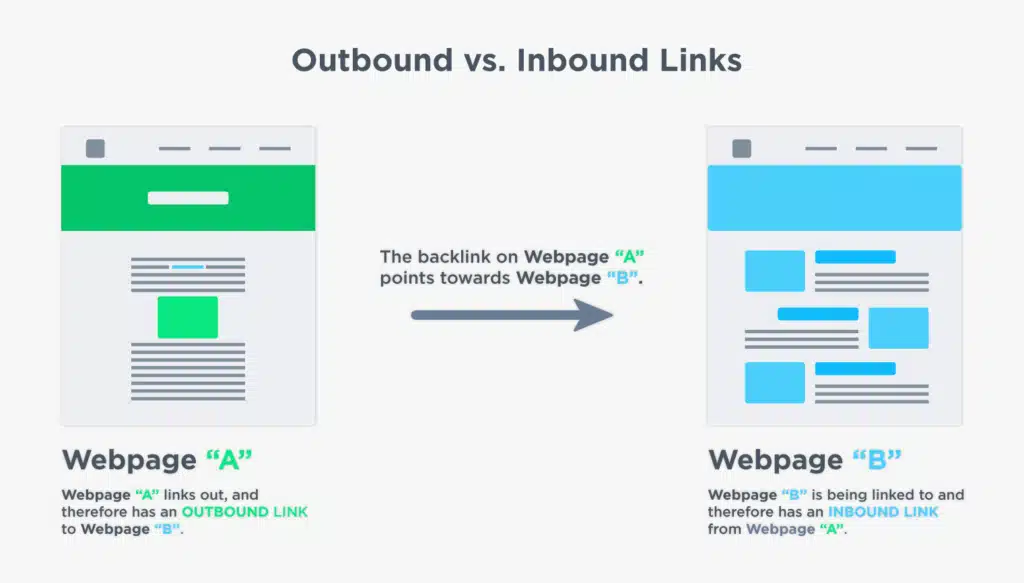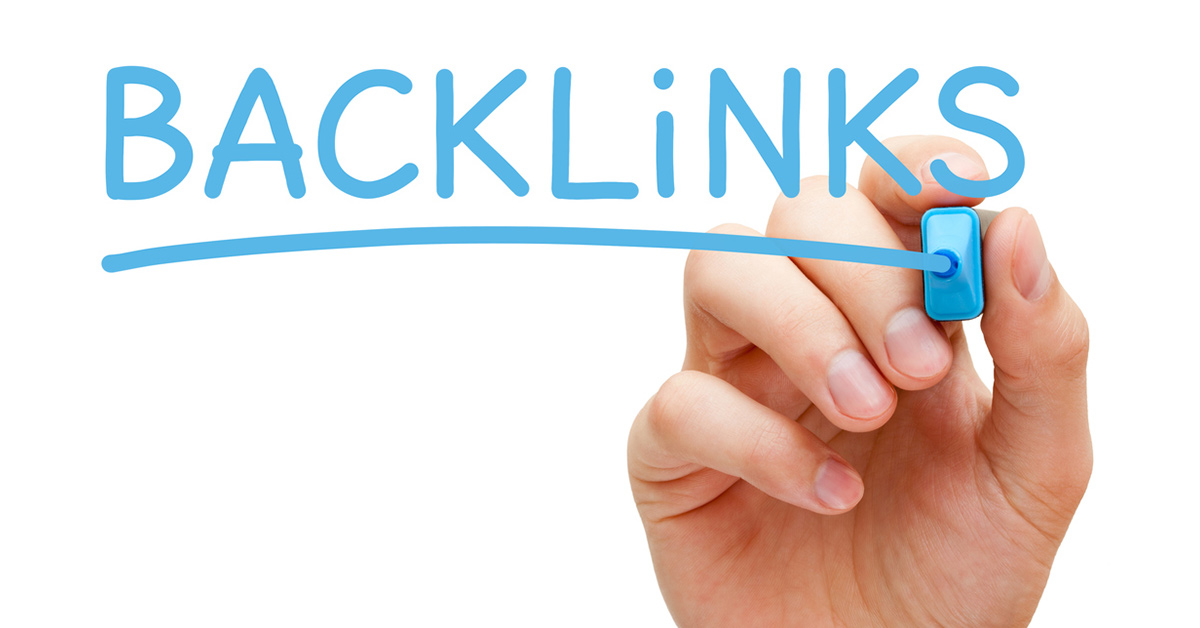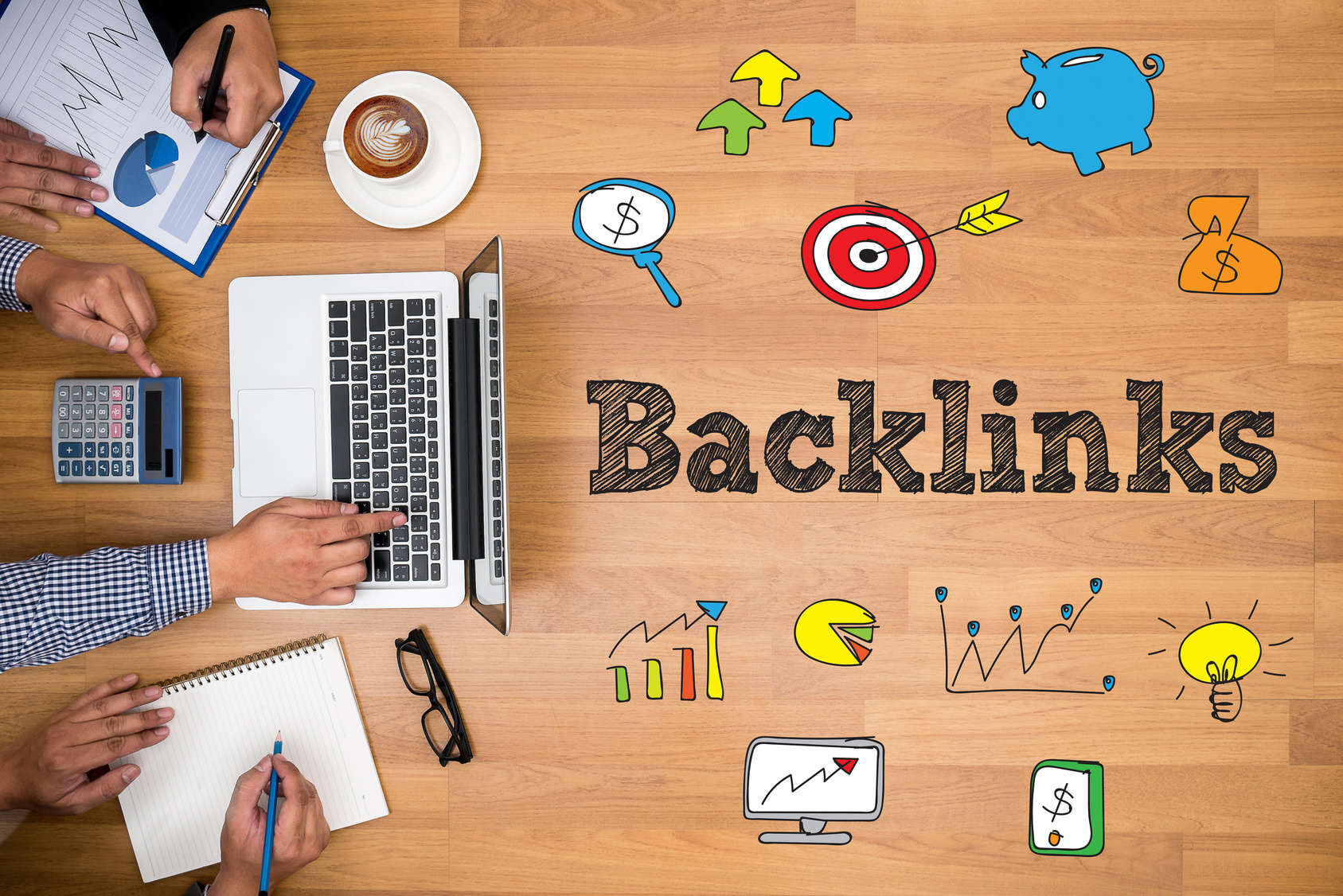Active Backlinks: Are They Advantageous To Your Website Or Not?
There are a few questions that divide the industry regarding SEO. One example is the potential advantages of incoming links. Find out more here.
Outgoing links are not considered a direct ranking signal by Google, but tests have shown that this is not the case.
Who should SEOs accept? For what reason would it be advisable for us to connect out by any means?
Google’s John Mueller flatly ignored the question about the impact of incoming links on “link juice,” stating once more that any advice containing the term “link juice” should not be taken seriously.
As a result, we need to investigate further and go back a few years to find out.
Links that are going in or going out: Are they both relevant?
What then distinguishes outgoing (outbound) from? approaching (inbound) joins?
Morningscore’s infographic pretty well explains it.

The majority of SEO professionals and others agree that inbound links—also known as backlinks—to your website are important.
On Google, inbound links continue to be a significant ranking factor.
While the web index consistently adds different signs to refine results, the first Google calculation depends on counting and evaluating the benefit of approaching connections.
The RankBrain algorithm and the concept of expertise, authoritativeness, and trustworthiness (E-A-T) are more complex additions that ensure that only content-rich, usable, and credible websites are ranked first.
However, the ranking itself is still largely dependent on traditional editorial links, or links that point “back” to your website.
But what about outgoing links, or links that lead to other websites from yours?
That has been a constant topic of discussion among SEO professionals and marketers alike.
First, let’s go over what we know about (outgoing) links.
They are not, as Mueller stated repeatedly, a direct ranking signal. However he numerous SEOs actually advocate connecting out.
- One strategy is known as the egoistic one. It assumes that you must preserve the authority you acquire from links to other websites. Therefore, linking out as little as possible to preserve authority, link value, or “equity.”
- I adhere to the other approach, which is somewhat charitable. It is predicated on the idea that the web is constructed of links (hence the term “hypertext” as used in hyperlinks), and that the better your site is, the more links you have to other sites.
Why are SEO professionals reluctant to link out?
Not only novice SEOs are frequently literally afraid to link out. Outgoing links also put some seasoned SEO professionals’ site authority in jeopardy. What’s going on?
Google penalizes websites for linking out or simply reduces their ranking algorithmically in some cases.
The following are a couple of models.
Negative neighborhoods
Websites in bad neighborhoods frequently deal with adult topics or gray areas like gambling and drugs without a prescription. Additionally, they are known as 3P (porn, pills, and poker).
The so-called “warez,” or websites that violate copyrights in general, are additional obvious examples.
However, even legitimate but subpar websites to which you link may have an adverse effect.
Connect plans (i.e., equal connections, interface ranches)
Google uses the term “link schemes” to describe all kinds of “unnatural” links designed to boost organic search engine rankings.
Common examples include reciprocal links (i.e., “I link to you so that you link to me”) and link farms (interlinked sites that just created, acquired, or paid for the links).
Google may devalue these links or penalize them as “unnatural links.”
Text ads with links
Text link ads, also known as “paid links” by Google, are links to other websites for which you have been compensated in some way.
These installments can be sponsorships, gifts or free items too.
When in doubt, outbound links for which you have been compensated may result in a penalty from Google.
You are required by Google to include the “sponsored” label on such links. Paid reviews that have been requested to be included on your website must also follow the same procedure.
Content created by users (UGC)
UGC includes comments, forum posts, and any other type of content that has been submitted without editorial oversight and links to risky third-party websites.
You should use the “UGC” link attribute on such links, according to Google. It would be ideal to check all contributions prior to publication.
Visitor posts, gadgets, infographics, and so on.
Throughout the long term, Google has added a great deal of normal Website optimization strategies to the rundown of unnatural connection rehearses. Guest posts, widgets, and infographics, among other widely used link building strategies, were among them.
Hence, when you have a portion of those on your site, you are expected to utilize the “nofollow” interface characteristic on outbound connections related with them.
Link problems
Even if a link leads to reputable resources, broken or dead links can quickly become harmful to your website’s health.
It goes beyond SEO issues. When visitors land on parked domains, error pages, or defunct websites, you also put your reputation at risk.
Regularly check for broken or redirected links and fix them. The last ones can be significantly more destructive as tricky locales will not necessarily in every case send a blunder code however rather a “200” Alright to trick you to connection to them.
When it comes to linking out, it’s not surprising that many SEO experts became increasingly reserved. For “the potential SEO benefit of linking out,” some of them only link to Wikipedia or similar sites.
Others play it safe by adding “nofollow” to all outbound links, despite Mueller’s statement that doing so also has no benefit.
How does Google explain the advantages of incoming links?
Even though I didn’t even list all of the potential drawbacks, linking out has advantages for both Google and the website owners who do it.
Mueller made a real video in 2019 about linking out and why it matters. He specifically advised linking to websites that “offer additional value and more context” at 1:19.
Linking to reputable sources and experts has added advantages now that Google’s ranking algorithm places a greater emphasis on E-A-T criteria.
What specifically does that imply?
Evidence of authority
How can you establish authority? You in a real sense add the creator’s name and short bio, then connect out to their site and web-based entertainment accounts.
Mysterious posts by “administrator” as the default creator on WordPress are typically called or reevaluated content that has no name appended to it.
Naturally, such content is significantly less convincing to readers and Google algorithms.
Using resources
In most cases, even highly skilled professionals rely on the work of others.
Journalists and bloggers ensure that others back up their expertise by citing and, ideally, quoting sources from academics.
Even if you aren’t yet a world-renowned expert, linking to sources, especially highly credible ones like universities, government agencies, or major publications like The New York Times, The Guardian, and The Wall Street Journal, builds credibility.
Demonstrating the direct impact of incoming links on SEO
Fortunately, we are not limited to Google’s words.
By simply determining whether outgoing links have a beneficial effect, some SEOs have actively sought an answer.
Furthermore, there is!
In the world of SEO, opinions should always be taken with a grain of salt. Genuine tests are much of the time more dependable.
Not just once, but twice, in 2016 and 2020, the team at Reboot Online, which bills itself as “a data-driven SEO company,” tried to determine how outbound links, or the absence of them, might affect results.
While it’s difficult to guarantee that a test just checks a specific positioning component or speculation, Website design enhancement examinations can frequently give valuable clues to your continuous improvement endeavors.
The test has been repeated in this instance to ensure that the results are accurate.
Ideally, you would also conduct your own tests, but the current Google ranking algorithm’s complexity makes this difficult.
Beyond SEO considerations, why do incoming links make sense?
Past the pretty much clear advantages that even Google representatives notice, there are a large number “social Website optimization” parts of active connections that can at last work on your rankings or if nothing else assist you with building up forward movement in alternate ways.
Even if you still don’t like linking to other websites because you don’t want to hurt your organic reach, here are some direct benefits of outbound links you should know about before you stop using them all.
Gaining attention
First and foremost, you are “getting out there” when you link to someone, usually someone who runs a website and might notice.
When you’re just starting out in a new niche, industry, or market, you want to “say hello” by thanking those who have come before you.
In the past, when I started a new blog, I usually made a list of “the best blogs” that covered the topic I wanted to write about.
These lists would not only bring other well-known bloggers to my relatively new publication as a pleasant side effect. Additionally, they would frequently appear at the top of Google for terms like “(topic) blog.”
When I think back on the more than 15 years I spent blogging about SEO, I have to admit that I have linked out to many of my most valuable connections and clients.
Naturally, numerous links were acknowledged without significant reciprocation, ignored, or ignored at all.
However, over the years, those who actually initiated a conversation and a relationship-building process have been extremely helpful to me.
This is especially crucial for “introverts,” who rarely attend trade shows, conferences, or meetups.
Take and give
When you connect, you give support, attention, and often appreciation. Google has counted your vote, even if you disagree with the content of the link.
We have been prepared for shared help for in a real sense a long period of time so when you get a gift from somebody, you are normally liable to respond eventually. At the very least, you are much more receptive to future suggestions.
Many individuals in the Web optimization industry connect with a rundown of “100 possibilities” and get a reaction pace of like 2%. Their fundamental mix-up is that they are reaching outsiders out of nowhere and requesting favors immediately.
You are thus motivated to be friendly and literally make friends or “build relationships,” even if you do not enjoy socializing with people who work in the same industry as you do.
Client experience
Nobody, not even an entity, knows everything. Even Google cannot satisfactorily respond to all queries. Accordingly while making content, we will continuously depend on others’ ability.
Even if you simply rephrase it without directly quoting, you probably won’t cover everything in depth; therefore, the link is provided.
You can stand on the shoulders of giants and simply link to other content without having to re-invent the wheel. This is a much better experience for the user than leaving the visitor hanging and not being able to cover the subject sufficiently for all readers.
Allow people to read more elsewhere or examine the bare-bones details you only mention.
Don’t worry about them leaving the site. They will be bound to return given the positive client experience.
How to make it count by linking out
Now that you’re thinking about linking out for SEO or other reasons, you probably want to know how to link out in a way that helps your website. Follow these guidelines.
Try not to add a ‘nofollow’ as needs be
A few distributers and websites add nofollow labels to all cordial connections to limit any possible dangers of connecting out.
However, this is analogous to asserting that all of your content lacks editorial control and is untrustworthy. In addition to the fact that there is no increase from it, however there is likewise an extra gamble of showing up bad quality.
Try to independently treat each connection. Only when absolutely necessary should nofollow tags be used.
Editorial links ought to be treated in the same way: as legitimate links without any attributes that could harm credibility.
Check and update active connections routinely
When you link out, you vouch for the resource to some extent. All things considered, you guarantee the legitimacy of the substance you actually suggest.
Even if you disagree with the information you link to, you at least give it enough weight to send your visitors in that direction. As a result, it’s also a good idea to check these links frequently on existing content.
Automating that task is possible with WordPress. You must either replace or unlink a resource whenever it vanishes.
No apparatus can caution you when outsider assets become obsolete. As a result, it’s a good idea to check manually and on a regular basis to make sure you don’t link to something that has already been proven false or changed.
Interface out for clients first, for Web optimization helps second
Make sure the resource you link to provides the reader with some “additional value.” Do not simply link out for the sake of SEO.
It’s nice when someone notices you and either links to or shares your content, which is ideal.
Even if Google does not notice or link back, it is sometimes preferable in the search industry to link directly to Google rather than to a blog that only rehashes the news.
In different cases, Google has just obscure declarations you really want a few clarifications on so an outsider blog is better.
Notice specialists by name and ‘ping’ them
You might be able to benefit from their audiences noticing your content as well if you link out to actual experts in your niche, industry, or country.
WordPress pings used to make sure that every linked blogger saw the message in their comment section.
The majority of blogs have disabled the pingback and trackback features due to abuse over time.
Similar to the days before blogs, you will once again need to manually notify individuals. Mention the experts you included by name and inform them that their content was linked to (via social media or mail).



